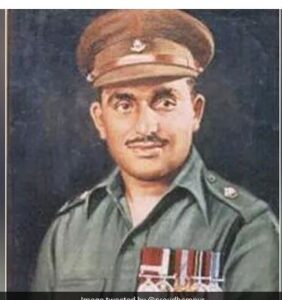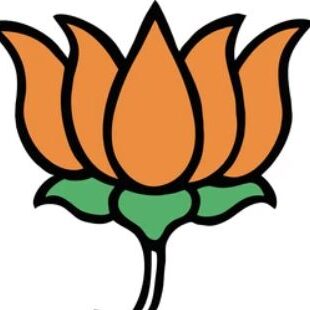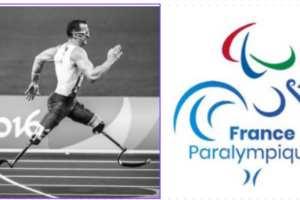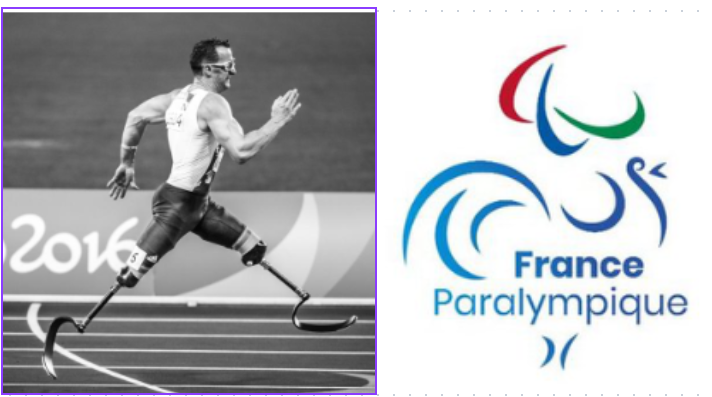
Major Somnath Sharma, the brave and heroic officer of the Indian Army, was born on 31st January 1923 in Dadh, Kangra, Punjab (now Himachal Pradesh). Hailing from a military family, with his father, Amar Nath Sharma, also being an army officer and his younger brother, Vishwa Nath Sharma, destined to become the Chief of the Army Staff of the Indian Army, it was no surprise that Major Sharma would follow in their footsteps.
He received his education at Sherwood College, Nainital, and later joined the prestigious Prince of Wales Royal Military College in Dehradun. His thirst for knowledge and dedication to the military led him to further studies at the Royal Military College, Sandhurst, from where he was commissioned into the 8th Battalion, 19th Hyderabad Regiment (later 4th Battalion, Kumaon Regiment) on 22nd February 1942.
Major Sharma’s military career saw him serving in the grueling World War II, specifically in the Arakan Campaign against the Japanese forces in Burma. During this campaign, his gallantry and leadership were acknowledged, earning him a mention in despatches.
The year 1947 brought India’s independence and the tragic partition that led to the Indo-Pakistani War of 1947-1948, as Pakistan invaded Jammu and Kashmir. Major Somnath Sharma, true to his duty and commitment, was airlifted to Srinagar on 31st October 1947, along with his company (D Company), to defend the city from the raiders. Despite nursing a fractured arm due to a hockey injury, he insisted on joining his men in combat, exemplifying his unwavering dedication to the cause.
Major Somnath Sharma in action
On 3rd November 1947, Major Sharma found himself leading a reconnaissance patrol near Badgam village, where he encountered a large number of enemy infiltrators. Realizing the strategic importance of his position in preventing the enemy from capturing Srinagar Airport, he fearlessly decided to hold his ground at all costs. With indomitable courage, he inspired his men and engaged the enemy in a fierce firefight.
In the midst of the battle, the enemy relentlessly threw grenades at his position from close range. But Major Somnath Sharma was not one to back down; he urged his men to retaliate and throw the grenades back at the enemy. In instances where it was difficult to retrieve the grenades, he fearlessly picked them up himself and hurled them back, completely disregarding his own safety. His selfless actions and unwavering determination to protect his country and comrades continued until he met his untimely end. A mortar shell landed near him, fatally wounding him, but his legacy of courage and sacrifice lived on.
For his supreme sacrifice and exemplary bravery, Major Somnath Sharma was posthumously awarded the Param Vir Chakra, India’s highest wartime gallantry award. His citation, a testament to his exceptional heroism, read: “He has set an example of courage and qualities seldom equaled in the history of the Indian Army. His last message to Brigade HQ a few moments before he was killed was ‘The enemy are only 50 yards from us. We are heavily outnumbered. We are under devastating fire. I shall not withdraw an inch but will fight to our last man and our last round.'”
Major Somnath Sharma’s memory lives on as a symbol of bravery and dedication, inspiring generations of Indian soldiers. His portrait is displayed at the Indian Military Academy in Dehradun, and a hall is named in his honor. A statue of this valiant soldier stands at Srinagar Airport, serving as a reminder of his sacrifice and the unyielding spirit with which he defended his country.
In conclusion, Major Somnath Sharma’s life and actions epitomize the virtues of a true military hero. His unwavering commitment to duty, his selfless leadership, and his ultimate sacrifice for the nation earned him the respect and admiration of the entire country. As the first recipient of the Param Vir Chakra, he set a benchmark of valor that continues to inspire and motivate the Indian Armed Forces and the citizens of India alike. Major Somnath Sharma will forever be remembered as an icon of bravery and patriotism, and his legacy will continue to shine brightly in the annals of Indian military history.










